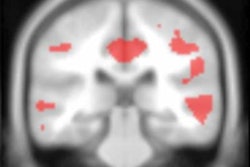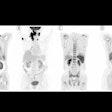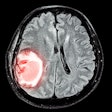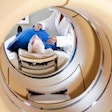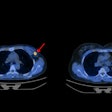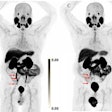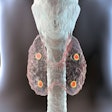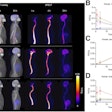
Individuals with mild cognitive impairment who slept less than six hours per night had higher levels of amyloid buildup -- a known contributor to Alzheimer's disease -- on PET scans than those who got more sleep, according to a study out of Japan published online June 9 in JAMA Open.
The association between lifestyle factors such as exercise and sleep quality with Alzheimer's disease has been studied previously, but researchers wanted to assess the impact of multiple lifestyle practices at the same time on the potential development of Alzheimer's, according to a team led by Dr. Noriyuki Kimura, PhD, of Oita University in Japan. They decided to investigate the question in a population of 855 individuals older than 65.
Study participants were first given a standardized test of cognitive function to identify those with mild cognitive impairment (MCI). Of the initial population, 118 (13.8%) were diagnosed with MCI, and these individuals were chosen to participate in the next phase of the study.
These individuals wore wristband sensors that acquired data such as walking steps, conversation time, and sleep parameters such as total sleep time, sleep efficiency, and time awake after sleep onset. To measure cortical amyloid burden, study participants underwent scans with a commercially available PET scanner (Biograph mCT, Siemens Healthineers) with two types of radiopharmaceuticals, carbon-11-labeled Pittsburgh compound B (PiB) and FDG.
In their initial analysis, the researchers found no statistically significant association between the seven lifestyle factors they measured and PiB-PET uptake in a multiple regression model. But after adjusting for covariables, they found that uptake of PiB was lower -- indicating less amyloid burden -- when total sleep time was longer than 325 minutes. FDG uptake also indicated higher glucose metabolism in those with total sleep times shorter than 325 minutes after adjusting for covariables and other statistical adjustments.
On the other hand, the researchers found no statistically significant association between radiopharmaceutical uptake and walking steps, conversation time, and sleep efficiency after adjusting for covariables.
In discussing the results of the study, the authors expressed their belief that their research was the first study investigating the association between various lifestyle factors with PET radiopharmaceutical uptake simultaneously in older individuals with mild cognitive impairment.
"Our results provide novel and interesting insights into the mechanisms underlying the association between lifestyle factors and cortical amyloid burden or brain function in older adults with MCI," Kimura and colleagues wrote.
They also noted the connection between glucose metabolism in the brain as indicated on the FDG-PET scans and longer total sleep time.
What could account for the differences? Kimura et al cited previous studies indicating that beta amyloid builds up during periods of wakefulness and is then cleared at higher levels during sleep, as well as that sleep deprivation can increase production of beta amyloid while reducing the rate at which it is cleared, leading to the formation of plaque buildup in the brain.
"These results lead us to hypothesize that sleep duration may be an important lifestyle factor associated with cortical amyloid burden and brain function," Kimura et al concluded.







